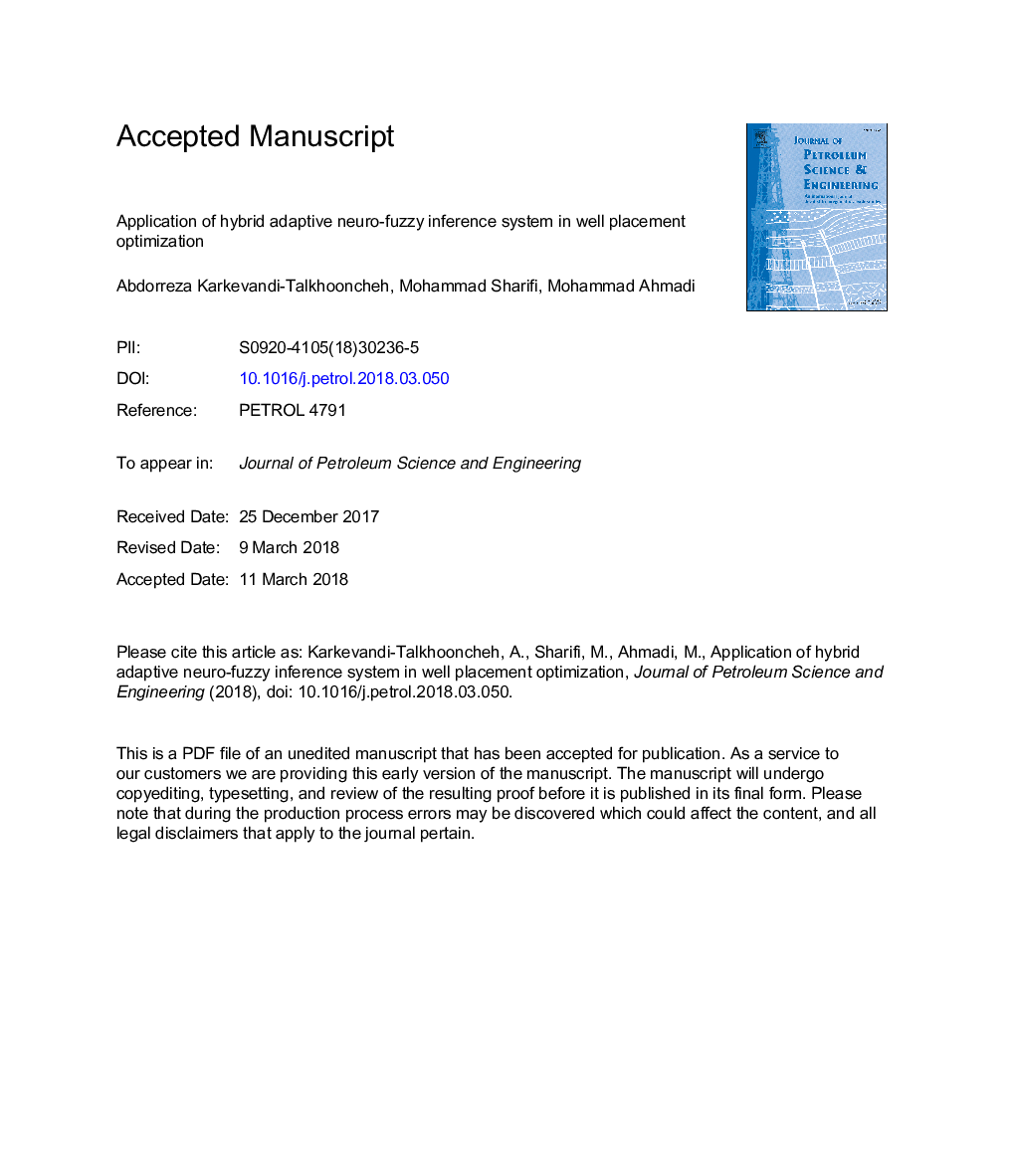| Article ID | Journal | Published Year | Pages | File Type |
|---|---|---|---|---|
| 8125038 | Journal of Petroleum Science and Engineering | 2018 | 48 Pages |
Abstract
Well placement optimization as a key factor in field development, is one of the reservoir management cycles, which aims to economize oil and gas production from the reservoir. One of the reservoir development scenarios is determining parts of the reservoir in which hydrocarbons have not been drained completely. After determination of these areas, some new wells are drilled to improve oil production. In this study, a new model based on adaptive neuro-fuzzy inference system (ANFIS) for optimum well placement is proposed. Also, an application of opportunity index (OI) concept is used to develop this model. Using particle swarm optimization (PSO) and genetic algorithm (GA) as population based algorithms, the ANFIS model was optimized. In order to develop and validate the proposed AFNIS-PSO model, a large number of simulation runs were performed in synthetic models. In this study, the proposed model was applied in both synthetic and standard models to find the best location for new production wells. The Tenth SPE model as a standard model was used to evaluate the performance and accuracy of ANFIS-PSO model. The performance of new method compared to well placement optimizer algorithms, which is the combination of commercial flow simulator and evolutionary algorithms, was investigated in terms of the number of simulations and maximum net present value (NPV). Finally, the simulation results show that the proposed ANFIS model was able to achieve better results with fewer simulation runs and therefore improving the computational efficiency.
Related Topics
Physical Sciences and Engineering
Earth and Planetary Sciences
Economic Geology
Authors
Abdorreza Karkevandi-Talkhooncheh, Mohammad Sharifi, Mohammad Ahmadi,
